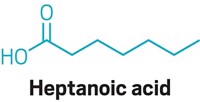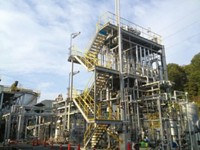Advertisement
Grab your lab coat. Let's get started
Welcome!
Welcome!
Create an account below to get 6 C&EN articles per month, receive newsletters and more - all free.
It seems this is your first time logging in online. Please enter the following information to continue.
As an ACS member you automatically get access to this site. All we need is few more details to create your reading experience.
Not you? Sign in with a different account.
Not you? Sign in with a different account.
ERROR 1
ERROR 1
ERROR 2
ERROR 2
ERROR 2
ERROR 2
ERROR 2
Password and Confirm password must match.
If you have an ACS member number, please enter it here so we can link this account to your membership. (optional)
ERROR 2
ACS values your privacy. By submitting your information, you are gaining access to C&EN and subscribing to our weekly newsletter. We use the information you provide to make your reading experience better, and we will never sell your data to third party members.
Environment
Growth For Algae-Based Biofuels
February 24, 2014
| A version of this story appeared in
Volume 92, Issue 8

Another area of active R&D interest involves using algae as a feedstock for biofuels. Compared with other feedstocks, algae contain more biofuel lipid precursors per unit area, grow faster, and can be harvested quicker. Scientists are eager to reduce the amount of energy it takes to extract these lipids from the algae. This process typically involves removing the water from the algae, then extracting the lipids.
A 2013 patent application from Unitel Technologies (U.S. Patent Application No. 20130287917) describes a process that bypasses these two energy-intensive steps. The researchers use a specialized hydrolysis reactor to make fatty acids directly from a slurry of water and cultivated algae. The process converts the algal lipids to their component fatty acids, which can be used to manufacture biofuels and other products. The researchers suggest that the water stream containing the lipids’ glycerol backbone can be recycled to promote phytoplankton growth and the remaining algal biomass can potentially be used as an ingredient in animal feed.
Patent Picks is a collaborative effort by C&EN and CAS. This feature reports on trends CAS scientists observe from patents in the CAS databases, which now generate more than 70% of the new substances appearing in the literature.




Join the conversation
Contact the reporter
Submit a Letter to the Editor for publication
Engage with us on Twitter